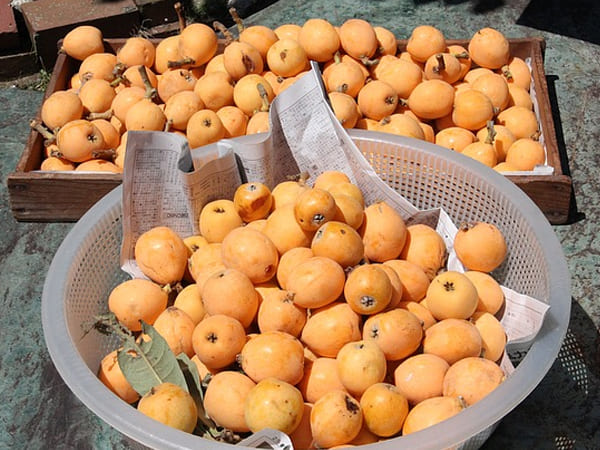Just In
- 3 hrs ago

- 4 hrs ago

- 8 hrs ago

- 12 hrs ago

Don't Miss
- News
 Electoral Bonds Controversy: Amit Shah Slams Rahul Gandhi, Asks Opposition Too Got Money, Is It Extortion?
Electoral Bonds Controversy: Amit Shah Slams Rahul Gandhi, Asks Opposition Too Got Money, Is It Extortion? - Movies
 Main Ladega, Mary Kom, Toofan - 5 Bollywood Boxing Dramas You Need To Watch
Main Ladega, Mary Kom, Toofan - 5 Bollywood Boxing Dramas You Need To Watch - Finance
 1:5 Stock Split: PSU Bank Fixes Record Date For First Ever Stock Split; Buy For Rs 650-680 Targets
1:5 Stock Split: PSU Bank Fixes Record Date For First Ever Stock Split; Buy For Rs 650-680 Targets - Sports
 T20 World Cup: 'He will definitely be in my list' - Anjum Chopra handpicks 2 wicketkeeper-batters for India squad
T20 World Cup: 'He will definitely be in my list' - Anjum Chopra handpicks 2 wicketkeeper-batters for India squad - Automobiles
 Tata Motors To Manufacture Jaguar Land Rover Cars In Billion Dollar TN Plant - Report
Tata Motors To Manufacture Jaguar Land Rover Cars In Billion Dollar TN Plant - Report - Technology
 OnePlus Ace 3 Pro Leak Hints at New Design; Expected Launch, Specifications We Know So Far
OnePlus Ace 3 Pro Leak Hints at New Design; Expected Launch, Specifications We Know So Far - Travel
 Journey From Delhi To Ooty: Top Transport Options And Attractions
Journey From Delhi To Ooty: Top Transport Options And Attractions - Education
 IIIT-Bangalore Introduces PG Diploma In Digital Product Design And Management
IIIT-Bangalore Introduces PG Diploma In Digital Product Design And Management
10 Nutritional Health Benefits Of Loquat
Loquat is a unique yellow fruit that grows in a cluster, appears round, oval or pear-shaped and tastes similar to peach, plum, and apricot. The botanical name is Eriobotrya japonica and it belongs to the family, Rosaceae. Common names of loquat is Japanese plum or Chinese plum.

Loquat is a large evergreen tree grown mainly as an ornamental plant in colder regions like Himachal Pradesh, Assam and a few hill stations in the South. Its flowers give out a sweet aroma. In India, at least 14 varieties of this yellowish fruit are cultivated.
Loquat's amazing benefits are also mentioned in the book, Ayurvedic Curative Cuisine for Everyone. The book says that loquat fruits improve the endocrine system, respiratory system, and digestive system. They are also used for their sedative properties [1] .

Nutritional Value Of Loquat
100 g of loquat contains 47 kcal of energy and 86.73 g of water. It also contains the following nutrients.
- 1.7 g dietary fibre
- 12.14 g carbohydrates
- 0.43 g protein
- 16 mg calcium
- 27 mg phosphorus
- 266 mg potassium
- 13 mg magnesium
- 14 μg folate
- 76 μg Vitamin A
- 1.0 mg Vitamin C
- 0.1 mg Vitamin B6
- 0.28 mg iron
- nutritional table

Health Benefits Of Loquat
Loquat is not only refreshing and delicious but is also packed with many health benefits.
1. Manages diabetes: Loquat helps in releasing the body's natural chemicals called polysaccharides that improve the production of insulin and help manage diabetes. It also supports the pancreas and prevents hyperlipidaemia [1] .
2. Helps in cancer therapies: Loquat has cytokine immune modulation capabilities which are beneficial in cancer therapies [1] . According to a study published in the Archives of Pharmacal Research, loquat leaves display anticancer potential that can suppress carcinogenic cells at different stages of cancer.
3. Controls blood pressure: Potassium present in loquat acts as a vasodilator for the heart. It reduces the pressure on the blood vessels and arteries and soothes them. Loquat is very effective in protecting the heart's health by improving the blood flow across the body [2] .
4. Improves intestinal health: Loquat is rich in dietary fibre. Consuming loquat fruit bulks up the stool and improves the bowel movement [3] .
5. Soothes respiratory system: Loquat helps in soothing the respiratory system by removing phlegm caused during cough and cold. Loquat leaves shorten the recovery time and help cure all kind of respiratory illnesses. It also helps in treating nausea [1] .

6. Protects the brain cells: The antioxidant property of loquat helps in improving the memory and other neurological problems. It helps combat the free radicals and protects the brain cells from their ill effects [4] .
7. Helps in weight management: Loquats are low in cholesterol and high in dietary fibre. The high fibre content in loquat helps to give a feeling of satiety and thus, keeps weight in control [3] .
8. Boosts immunity: The vitamin C present in this yellow fruit helps in the production of white blood cells, a defence against pathogens and illnesses. Vitamin C also helps in the production of collagen that repairs the old tissues and promotes the growth of new cells [5] .
9. May help against HIV: Loquat leaves are believed to have anti-HIV effects. The 2-alpha-hydroxy ursolic acid (one of the nine bioactive triterpenes) present in the leaves of loquat has a mild restrictive effect on HIV. They also possess anti-inflammatory and analgesic properties [6] .
10. Strengthens Bones: Consumption of loquat helps in strengthening the bones and preventing the loss of bone density caused due to ageing and medications used to treat asthma, breast cancer, etc. The vitamins and minerals in the fruit help in making bones strong [7] .
Also read:

Side Effects Of Loquat
Drinking loquat tea made from their leaves help in curing skin diseases, nausea, and itching. On the other hand, if it is consumed in excess, one can develop toxic myopathy, a type of muscle disease in which the muscle does not perform properly and cause pain, weakness and inflammation in the muscles [8] .
How To Consume Loquat
Firstly, wash the loquat fruit in cold water and remove the stem. Peel the skin directly or boil it for 2-3 minutes to easily remove it. From the top of the fruit, slide the knife until it touches the seeds in the middle. Then, rotate the fruit in the hand and give a round cut to the fruit from its outer surface. Use fingers to separate the two halves. Dig out all the seeds and eat the juicy pulp of the fruit.

Uses Of Loquat
1.
Used
as
a
sedative
in
mild
proportion
[1]
2.
Used
in
preparing
fruit
salads
3.
Jam
and
jellies
are
prepared
from
the
fruit
4.
Raw
loquats
are
used
in
preparing
pies
or
tarts
5.
Used
in
manufacturing
wine
Loquat Herbal Tea Recipe For Diabetics
Ingredients:
- Water
- 2 loquat leaves
Method:
- Take a knife and scrub the fur underside of the leaves.
- Rinse the leaves with water and dry it.
- Remove the veins of the leaves and cut it into pieces
- Heat the water and bring it to boiling point.
- Add chopped leaves and reduce the flame after 5 minutes.
- Allow the tea to steep for approx 15 minutes.
- Strain the tea and add sweeten as per the taste.
- [1] Liu, Y., Zhang, W., Xu, C., & Li, X. (2016). Biological Activities of Extracts from Loquat (Eriobotrya japonica Lindl.): A Review. International journal of molecular sciences, 17(12), 1983. doi:10.3390/ijms17121983
- [2] Chiang, J. T., Badrealam, K. F., Shibu, M. A., Kuo, C. H., Huang, C. Y., Chen, B. C., ... & Huang, C. Y. (2018). Eriobotrya japonica ameliorates cardiac hypertrophy in H9c2 cardiomyoblast and in spontaneously hypertensive rats. Environmental toxicology, 33(11), 1113-1122.
- [3] Tan, H., Sonam, T., & Shimizu, K. (2017). The Potential of Triterpenoids from Loquat Leaves (Eriobotrya japonica) for Prevention and Treatment of Skin Disorder. International journal of molecular sciences, 18(5), 1030. doi:10.3390/ijms18051030
- [4] Goulas, V., Minas, I. S., Kourdoulas, P. M., Vicente, A. R., & Manganaris, G. A. (2014). Phytochemical content, antioxidants and cell wall metabolism of two loquat (Eriobotrya japonica) cultivars under different storage regimes. Food chemistry, 155, 227-234.
- [5] Xu, H. X., Chen, J. W., & Xie, M. (2010). Effect of different light transmittance paper bags on fruit quality and antioxidant capacity in loquat. Journal of the Science of Food and Agriculture, 90(11), 1783-1788.
- [6] Taniguchi, S., Imayoshi, Y., Kobayashi, E., Takamatsu, Y., Ito, H., Hatano, T., ... & Shimura, S. (2002). Production of bioactive triterpenes by Eriobotrya japonica calli. Phytochemistry, 59(3), 315-323.
- [7] Cho, Y. H., Lee, S. Y., Kim, C. M., Kim, N. D., Choe, S., Lee, C. H., & Shin, J. H. (2016). Effect of Loquat Leaf Extract on Muscle Strength, Muscle Mass, and Muscle Function in Healthy Adults: A Randomized, Double-Blinded, and Placebo-Controlled Trial. Evidence-based complementary and alternative medicine : eCAM, 2016, 4301621. doi:10.1155/2016/4301621
- [8] Saliba, W. R., Goldstein, L. H., Habib, G. S., & Elias, M. S. (2004). Toxic myopathy induced by the ingestion of loquat leaf extract. Annals of the rheumatic diseases, 63(10), 1355-1356.
-
 healthExclusive: Expert Shares Impact of Heat Waves on Infectious Disease Transmission
healthExclusive: Expert Shares Impact of Heat Waves on Infectious Disease Transmission -
 healthExclusive: Doctor Shares Why Women Should Prioritize Health, Key Resolutions For Well-being And Vitality
healthExclusive: Doctor Shares Why Women Should Prioritize Health, Key Resolutions For Well-being And Vitality -
 healthEverything You Need To Know About Deadly H5N1 Virus That Can Be 100 Times Worse That COVID-19 Pandemic
healthEverything You Need To Know About Deadly H5N1 Virus That Can Be 100 Times Worse That COVID-19 Pandemic -
 astrologyWorld Health Day 2024: Holistic Health Tips For 12 Zodiac Signs As Per Astrology
astrologyWorld Health Day 2024: Holistic Health Tips For 12 Zodiac Signs As Per Astrology -
 healthInstagram Claims Grapes Are Contaminated With Pesticides, Methods To Clean It Properly Before Consuming Them
healthInstagram Claims Grapes Are Contaminated With Pesticides, Methods To Clean It Properly Before Consuming Them -
 healthDutch Woman Opts For Euthanasia In May Not Due To Physical Illness, Know How To Build Mental Resiliance
healthDutch Woman Opts For Euthanasia In May Not Due To Physical Illness, Know How To Build Mental Resiliance -
 health20-Year-Old Man In China Suffers From Delusional Love Disorder, Know What Is Erotomania And Its Signs
health20-Year-Old Man In China Suffers From Delusional Love Disorder, Know What Is Erotomania And Its Signs -
 healthExclusive: On World Autism Day 2024, Let Us Empower Parents With Positive Strategies For Autism Care
healthExclusive: On World Autism Day 2024, Let Us Empower Parents With Positive Strategies For Autism Care -
 health10 Year Old Girl Dies After Eating Cake, How To Identify A Bad Cake Online, What Health Risks It Can Pose
health10 Year Old Girl Dies After Eating Cake, How To Identify A Bad Cake Online, What Health Risks It Can Pose -
 healthLove To Cuddle? These Are The 10 Amazing Health Benefits Of Cuddling Which Will Make You Want It More
healthLove To Cuddle? These Are The 10 Amazing Health Benefits Of Cuddling Which Will Make You Want It More -
 astrologyApril 2024 Health Horoscope: Know How This Month Will Affect Zodiac Signs In Terms Of Wellness
astrologyApril 2024 Health Horoscope: Know How This Month Will Affect Zodiac Signs In Terms Of Wellness -
 healthWhat Is iPhone Finger? Here's Why You Need To Worry About Its Negative Effects
healthWhat Is iPhone Finger? Here's Why You Need To Worry About Its Negative Effects


 Click it and Unblock the Notifications
Click it and Unblock the Notifications



